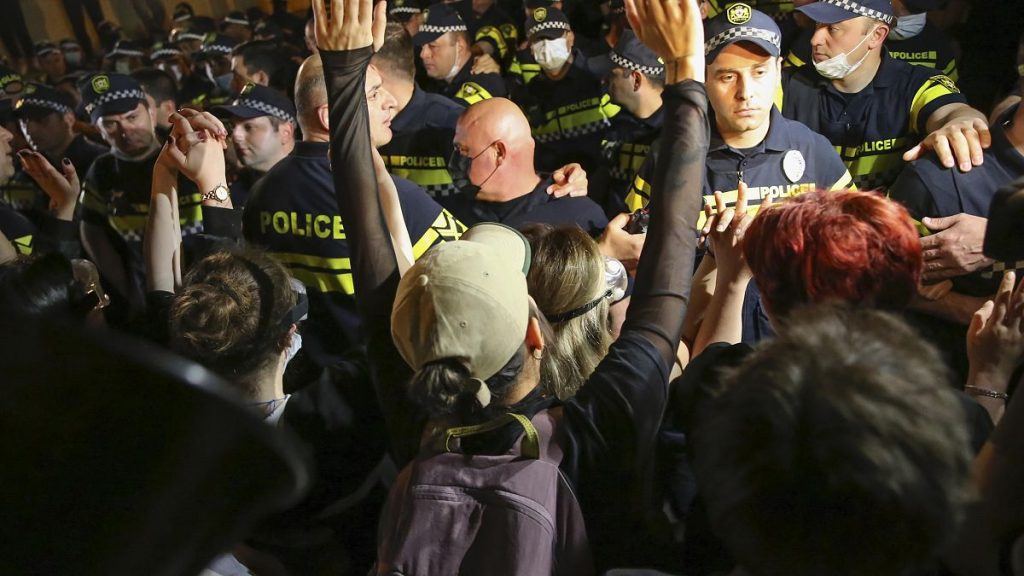Critics have expressed concern over a controversial foreign influence transparency law passed in Georgia that could potentially stifle the press and non-governmental organizations, as well as jeopardize the country’s chances of joining the European Union. Dubbed the ‘Russian law’, the bill requires media and non-commercial organizations to register as ‘pursuing the interests of a foreign power’ if they receive more than 20% of their funding from abroad. Critics worry that this legislation could be used to silence dissenting voices, similar to how similar laws have been used in Russia to suppress criticism of the Kremlin. Georgia has been a candidate country since December 2023, and fears of undermining the path to EU membership have been raised by opponents of the bill.
EU Commission President Ursula von der Leyen and other EU officials have condemned the police violence in Georgia that occurred after the passage of the controversial law. Von der Leyen expressed concern over the situation in Georgia and condemned the violence on the streets of Tbilisi, stressing that the Georgian people desire a European future for their country and urging Georgia to stay on the path towards Europe. Critics of the law, such as Elene Khostaria, leader of the opposition Droa Party, have emphasized the importance of fighting for freedom and defending the European future of the country. Despite the challenges, Khostaria and other protestors remain determined to resist and overcome any obstacles in their pursuit of a democratic and European future for Georgia.
Support for EU membership among Georgia’s 3.7 million citizens remains high, with 81% of respondents in a 2022 poll by the National Democratic Institute expressing support for joining the European Union. However, supporters of the bill argue that it is necessary to ensure transparency and national sovereignty. The ruling Georgian Dream party, which proposed the bill, contends that the legislation is essential for safeguarding the interests of the country. President Salome Zourabichvili has criticized the police response to the recent demonstrations, denouncing the violence as unwarranted, unprovoked, and disproportionate. Zourabichvili has vowed to veto the bill, but the ruling party could override her veto by collecting a sufficient number of votes.
The situation in Georgia has raised concerns about the potential impact of the foreign influence transparency law on freedom of the press and civil society, as well as the country’s aspirations for EU membership. The bill has been met with widespread opposition from critics who fear its potential to be misused to suppress dissenting voices and undermine democratic principles. Despite these challenges, opposition leaders like Elene Khostaria remain committed to defending freedom and the European future of Georgia through peaceful protests and advocacy efforts. The strong support for EU membership among Georgian citizens highlights the importance of upholding democratic values and ensuring transparent governance in the country.
The condemnation of police violence by EU officials, including Commission President Ursula von der Leyen, underscores the international concern over the developments in Georgia. The use of force against demonstrators and the restrictions on freedom of expression are seen as threats to democratic values and the rule of law. Pressure from both domestic and international actors, combined with public protests and advocacy efforts, may help to push back against the implementation of the controversial law and protect the rights and freedoms of the Georgian people. The outcome of the ongoing protests and political deliberations in Georgia will be crucial in determining the country’s future trajectory and its relationship with the European Union and the international community.


